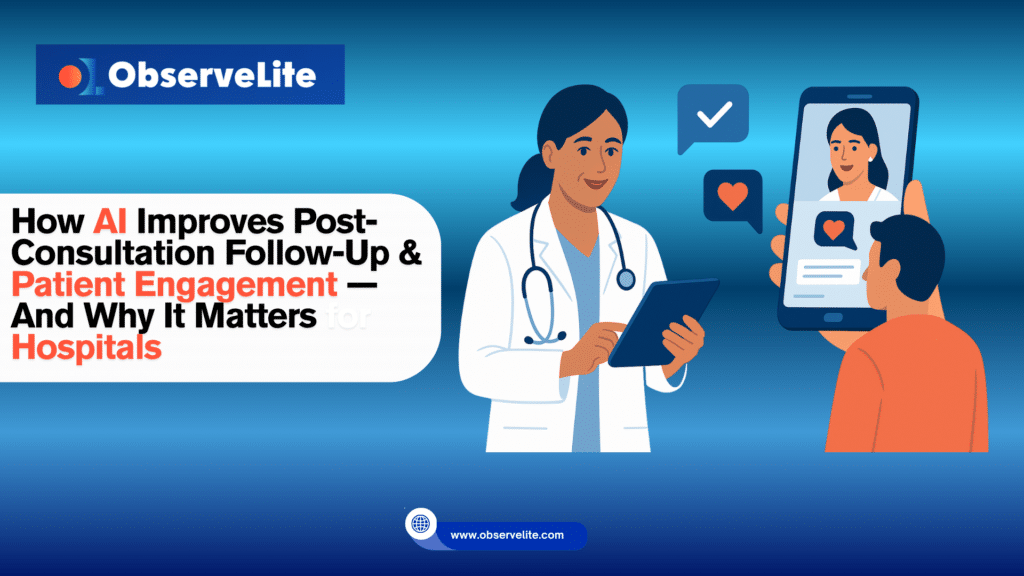Hospitals today face a growing challenge—keeping patients engaged once they walk out the door. Missed follow-ups, unanswered reminders, and poor communication create serious gaps in care, leading to readmissions, patient dissatisfaction, and revenue leakage.
Despite digitization, many hospitals still rely on outdated methods to manage post-consultation outreach—manual calls, generic texts, and inconsistent systems that don’t scale. This is where AI in patient engagement makes a meaningful impact.
With intelligent automation and personalized communication, hospitals can finally close the gap between discharge and recovery. In this blog, we’ll explore how OLGPT—a customizable generative AI platform from ObserveLite—is powering a smarter, more effective post-consultation journey.
AI in Follow-Up Care: From Manual Chasing to Smart Continuity
Traditional follow-up care is reactive. It depends heavily on staff bandwidth, routine templates, and one-size-fits-all messaging. As patient volumes grow, this model simply doesn’t scale.
Smart follow-up systems in hospitals powered by AI now automate:
- Appointment rescheduling
- Test result follow-ups
- Medication and aftercare reminders
- Personalized health education messages
OLGPT integrates with hospital information systems to orchestrate timely, relevant touchpoints—reducing human error and improving care consistency.
Patient Engagement Software that Understands Context
Generic engagement tools don’t understand clinical context. AI-powered patient engagement software does.
OLGPT goes beyond sending reminders. It learns from:
- Diagnosis codes
- Treatment history
- Patient behavior and channel preferences
- Risk profiles
It can personalize engagement flows for a diabetic patient differently than for a recovering orthopedic case. This ensures that outreach feels helpful—not spammy—and that patients stay involved in their care journey.
AI in Healthcare Communication: Building Better Relationships
Follow-up isn’t just about sending information. It’s about maintaining trust and access between the patient and the care provider.
With AI in healthcare communication, hospitals can offer:
- Multilingual chatbots that explain next steps clearly
- Voice-based assistants that guide patients with low literacy
- Escalation triggers to connect patients with care teams when needed
OLGPT enables this through custom workflows built around hospital policies, ensuring safe, sensitive, and on-brand communication across all patient segments.
AI-Driven Patient Reminders That Actually Get Seen
Sending a reminder is easy. Getting it noticed and acted upon is hard.
AI-driven patient reminders adapt message timing, format, and frequency to what works best for each patient:
- Morning reminders for working professionals
- Voice calls for elderly patients
- Push notifications for younger, mobile-savvy users
If a patient doesn’t respond, OLGPT escalates—nudging again through another channel, or notifying a caregiver. This dynamic logic leads to better adherence and lower no-show rates.
AI for Hospital Retention: It’s Not Just About Appointments
Retention is often seen as a marketing metric—but in healthcare, it directly affects outcomes and margins.
Hospitals using AI for hospital retention are able to:
- Bring patients back for critical follow-up appointments
- Prevent drop-offs in multi-visit care pathways
- Identify disengaged patients and re-engage them intelligently
OLGPT enables hospitals to track and improve lifetime patient journeys, not just isolated visits. That’s long-term value—clinically and financially.
Inside OLGPT: A Customizable GenAI Platform for Hospitals
OLGPT isn’t a pre-built chatbot or a plug-and-play widget. It’s a specifically designed for domains like healthcare.
Built with hospital-grade privacy, OLGPT is:
- Deployable on-prem or hybrid
- Configurable to your hospital’s workflow logic
- Governed by ethical AI practices and guardrails
- Trained with clinical context and communication intent
Whether it’s sending follow-ups, summarizing discharge notes, or engaging patients during recovery—OLGPT adapts to your environment, not the other way around.
Why This Matters for Modern Hospitals
- Doctors stay focused on care, not coordination.
- Patients feel guided throughout their journey, not forgotten after discharge.
- Hospitals improve compliance, quality scores, and operational efficiency.
- IT and clinical ops teams work with smarter workflows, not more dashboards.
In short, AI doesn’t replace your system—it makes it work better.
Final Thought
Patients shouldn’t be left to figure out follow-up care on their own. With AI in patient engagement, hospitals can provide intelligent, personalized, and scalable communication that boosts recovery, loyalty, and outcomes.
OLGPT is the engine that powers this transformation—secure, contextual, and ready for real hospital needs.
Want to see how OLGPT can improve your follow-up system?
Book a tailored demo now.


